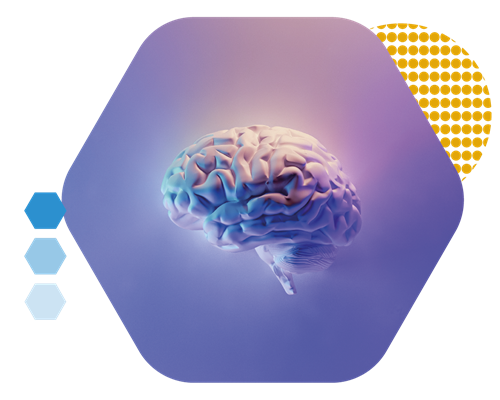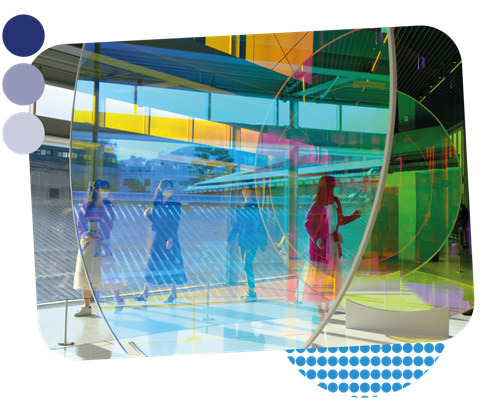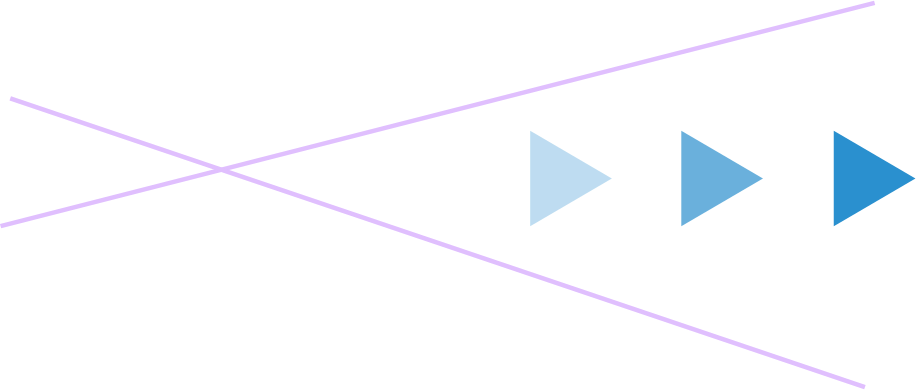Home / Thinking Zone / Nothing Changes if Nothing Changes
Nothing Changes if Nothing Changes
Change is complicated. It’s with us all the time and yet we can’t see it or hear it until it affects our lives in some way. Imagine an old-fashioned grandfather clock with a swinging pendulum; back and forth with ease, repeating the same action over and over as time passes by, almost imperceptibly and without comment. It might seem as if nothing is changing but each swing of the pendulum introduces a change to the present moment – it could be big or small, welcome or unwelcome but it is always different.
How do you feel about change? Is it something you embrace or resist?
Posted 22 January 2024
Whatever you feel about it, one thing is certain and that is, change is with us whether we like it or not and it is our attitude to it which will cast the deciding vote.
Consider this phrase attributed to the ancient Greek philosopher Heraclitus:
No man ever steps in the same river twice, for it’s not the same river and he’s not the same man.
Whilst there have been many interpretations of this intriguing statement, it is perhaps a truism that as time passes, things inevitably change – and that many of these changes never have been and never will be under our control. We cannot change the fundamental passing of time or the fact that we grow older within ageing bodies, or how the weather behaves, and yet change, for many is problematic.
Heraclitus is seen as being the first to the express the idea that everything is ‘in flux’ and the first to record a way of looking at reality as dynamic rather than static. He believed that change was fundamental to the nature of the universe and said that the world was in a continuous process of transformation and becoming. Later philosophers, notably Alfred North Whitehead expanded on these initial ideas to create what is now known as ‘process philosophy’ and in his major work, Process and Reality (1929) he explored the interconnectedness of events, the nature of reality and the importance of process over substance. Amongst the many other branching and complex topics within process philosophy, Whitehead and his contemporaries also explored the importance of creativity within a constantly changing world. Whitehead stated that creativity was a generative force and a fundamental principle of reality because it led to novelty and the continuous transformation of the world. Artists and creatives might respond to this by saying that they have always known this fact, but nevertheless, Whitehead’s formalisation of ideas around creative transformation and change are intriguing.

The field of psychology also recognises the fact that change is a force to be reckoned with in our lives and in particular, Cognitive Behavioural Therapy (CBT) actively uses therapeutic techniques to challenge negative or damaging thought patterns. The use of CBT was initially developed by psychiatrist Aaron T Beck in the 1960s. Having previously worked within the field of depression, Beck began to focus on his patients’ underlying negative associations with loss and failure and over time, adopted a collaborate role with them whereby he was able to challenge their ‘cognitive distortions’. He realised that within any given situation, how a person thought about themselves was key – and that crucially, ‘If beliefs can change, symptoms can change’. He encouraged his patients to engage in adaptive thought processes, essentially enabling them to feel better - and it is this connection to adaptability which seems essential in maintaining a positive attitude to change.
There are many examples within the world of health and psychology which show us that change is a positive thing, particularly when we associate it with personal growth and overall wellbeing. Psychologists Carol Dweck and Erik Erikson for example are both known for work which associates change with a positive or ‘growth’ mindset. Carol Dweck’s research on ‘fixed’ and ‘growth’ mindsets[1] have particular applications within personal development and education. Dweck showed that those who have a growth mindset find it a lot easier to embrace challenge, garner resilience in the face of setbacks and see change as an opportunity to learn and persevere. By contrast, those people with a ‘fixed’ mindset are more likely to think of opportunities and qualities within themselves as static; finding any change or setback very difficult, and ultimately, demoralizing. Dweck’s research has understandably been essential within the field of education - her findings challenge the traditional notion that failure is connected to lack of intelligence or ability and this has had countless ripple effects which have in turn, created a more supported learning environment in recent years.
Embracing change within education has never been more important and since the introduction of the internet, learners and educators have had increased access to information, dynamic and interactive learning environments, collaborative learning tools and global connection. These, together with many other technical developments have been transformative in many ways and have given us more choices than ever before - but they are only part of the story. As technology continues to evolve, particularly around AI, we must ensure that learners still have the ‘right’ access to knowledge that is free from bias. There appears to be a growing awareness within education that inclusion and diversity are at the heart of development and in a lot of cases, the learning environment has changed positively to recognise those not always following a straightforward academic pathway. What follows from this are many other branching questions around individuality and what ‘achievement’ really means – if we were to go by conventional academic results then we would be discounting the achievements of Einstein, Thomas Edison, Steven Spielberg and Tim Peake, who by their own admission did not do well at school.

So what does it truly mean to ‘have an education’ in 2024?
The idea that teaching and delivery should meet the student where they are is the ideal, but this relies on there being no hierarchy or prejudice in who or what is better in terms of intelligence, and that the method of learning is one which the student can align with. There are many popular references to different types of intelligence[2] but ultimately, positive change within education can only happen within a broader societal and political context which is supported; and inevitably there are potential barriers to this. There are countless examples of people who were deemed ‘under achievers’ at school but who have gone on to be successful in their lives and careers – (eg: Sir Ken Robinson[3], Richard Branson, Hans Zimmer) - and often they have cited their natural or acquired ability to think positively, be adaptable and embrace or create change as being the motivating force.
However, sometimes change is not positive; in fact, it can often be thoroughly unwelcome; and as humans, we are inherently resistant to it for this very reason. Whilst we can see that philosophically speaking, we are living against a fundamental backdrop of constant change; embracing it within our daily lives is actually very difficult. Psychology tells us that resistance to change is likely to increase as we get older[4], perhaps because it can disrupt the peace and stability of a job and home life which has been hard won. Interestingly, studies have shown that even life changing events are less likely to lead to internal transformation in people over a certain age[5]. It seems that, aside from illness, our personalities and reactions become more fixed and stable the older we get.
From an evolutionary standpoint, our brains have actually developed to resist change and one reason for this, say experts, is that doing or feeling something new requires a lot of energy. Throughout our lives, humans have naturally learned how to do and feel countless things and as a result, neural pathways have been established, enabling reduction in energy consumption when we repeat those things. When we encounter a change, our brain has to use energy from precious reserves and not only that, it has to use energy on something which may be a threat. Our brains are excellent at keeping us safe, and any change to the status quo will initially be perceived as a potential risk. This is apparently why habits are notoriously difficult to break and why we shouldn’t feel bad if we haven’t yet managed to stick to a new year’s resolution (made ten years ago…)

Homeostasis[6] may be another reason why it’s so hard to create and maintain change – our bodies as well as our brains, like to keep the status quo by maintaining a stable environment for all of our bodily systems, including our temperature, blood pressure and hydration.
So where does this leave us? Paradoxically, even though our bodies and brains seem to instruct us to resist change, they are themselves in a constant state of flux. Whilst it is an oversimplification to say that our bodies are ‘renewed’ every 7—10 years due to cell regeneration; it is largely true that most cells in our bodies do regenerate, albeit at different rates and within varying conditions. New research is showing that even brain cells (previously thought not to regenerate) also do reproduce themselves right into old age via a process called neurogenesis. It is ethically and technically challenging to research the human brain but studies have suggested findings of neurogenesis within the hippocampus region of the brain[7].
However, despite the fact that many of us (for good reason) find change difficult, the concept of the ‘changemaker’ has emerged in recent years to refer to someone who actively seeks out change, normally within a positive and/or entrepreneurial context. The term Changemaker has been attributed to Bill Drayton, who founded Ashoka, a global organisation supporting social entrepreneurs and it has found its way into common parlance to mean anyone who instigates change for the better.

But what does it mean to be a change maker?
Surely the type of person referred to by advocates of Ashoka have always existed - history is littered with people, both good and bad who instigated change. Marie Curie, Rosa Parks, Malala Yousafzai are obvious examples of people who instigated positive changes but there have also been countless others who have created so called ‘negative’ change; and yet often, change happens as a result of other changes which can later be seen as a continuous chain reaction. Indeed, many so called changemakers have experienced extreme adversity which has forced their hand in some way. When the changes brought about prove to be positive then this reminds us of the power of adaptability and growth mindset, previously discussed. Aside from individual changemakers, there are also fields of study which are pushing positive change within society – scientists, medics, environmental campaigners, carers, teachers, the list goes on. Perhaps, without realising it, we are all changemakers?
It could be said then, that there is a veritable Smörgåsbord of issues circling the concept of change – there is the ‘everything is in flux’ concept which Heraclitus referred to - one in which time and space are in perfect, unreachable harmony - and then there is the fact that even the smallest change to our daily lives can be seen as a threat by our nervous systems.
Is coping with change simply a case of acceptance and going with the flow?
The ancient Stoics, inspired by Heraclitus leaned towards this sense of acceptance, but in a modern world which has so much access to information at our fingertips, this seems impossible. Some might say that trying to look into the future is pointless, and yet throughout the world there are many industries built around trying to predict what might happen next – financial forecasting, weather prediction, healthcare analytics, political forecasting and sports analytics are all examples of a world that is trying to garner some knowledge and control over its changing future.
There are also the more philosophical and spiritual questions around trying to predict the future, varying significantly within specific cultures, belief systems and evolving practices. Fate and determinism are distinct concepts but both have deep roots which question the nature of reality, preordained outcomes and what might be seen as the ‘illusion of change’.
If you could know your future and accurately predict life changes, would you want to find out?
Perhaps you think that change happens as a result of a chaotic and creative sequence of events, or perhaps you feel there is some pre-determined ‘script’ which is simply being played out.
Whatever the answer it seems inevitable that change is an inherent part of our lives and one which we cannot escape. Perhaps the answer lies in embracing the duality of change and sameness - of water into ice or steam; of a caterpillar into a butterfly, or a seed into a flower. Let us end by considering a second statement by contemporary philosopher and Hellenistic scholar, John Sellars:
Everything changes. The question is, do we change with it?
If you would like to respond to any of the questions raised in this piece or any of the other Thinking Zone articles you can get in touch with our Thinker in Residence.
[1] Carol Dweck on How Growth Mindsets Can Bear Fruit in the Classroom – Association for Psychological Science – APS
[2] Theory of multiple intelligences - Wikipedia
[3] Ken Robinson (educationalist) - Wikipedia
[4] (PDF) Age, resistance to change, and job performance (researchgate.net)
[5] Michael Merzenich; Elkhonon Goldberg; Daniel Levitin
[6] Process explored by Claude Bernard in 1849 and word coined by Walter Bradford Cannon in 1926.
[7] Human adult neurogenesis: evidence and remaining questions - PMC (nih.gov)











